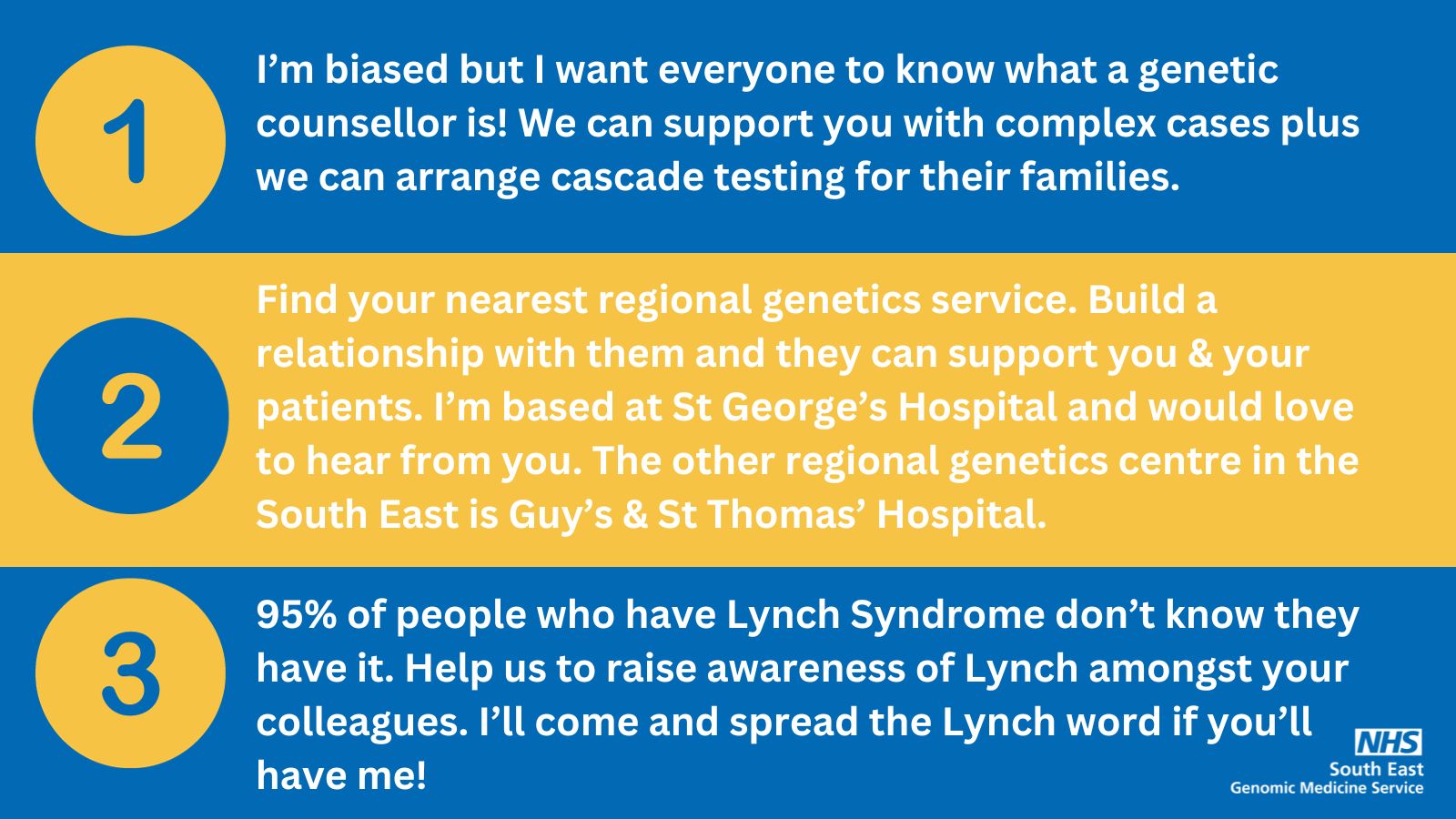Andrea is a genetic counsellor and is passionate about supporting people through genetic testing for cancer.
“When I first qualified 20 years ago, there was only a handful of genetic tests available for cancer. Now, the world of genomics has changed so much that we are able to offer multiple genetic tests for a whole range of cancers. These tests help us to understand your risk of developing inherited cancers, but also enable doctors to learn more about your tumour and how best to treat it.”
Screening for Lynch Syndrome is just one of the tests that is now routinely available for anyone who has endometrial or bowel cancer. Lynch is an inherited genetic condition that significantly increases your risk of developing cancer.
“We’ve learnt so much about Lynch Syndrome in recent years. We now know that about 1 in 300 people have Lynch syndrome. To put that in perspective, about 1 in 300 people in the UK work as solicitors. Think about how many solicitors you might know, and that is how many people you might know who have Lynch!”
Andrea is part of an exciting NHS project that is working hard to change these statistics. Together doctors, nurses and scientists from the NHS Genomic Medicine Service have been tirelessly raising awareness and campaigning for genetic screening for Lynch to become more mainstream.
NICE guidelines state that all NHS patients who have either bowel or endometrial cancer should automatically be screened for Lynch Syndrome. Anyone who tests positive will then get regular screening to ensure any cancer is picked up early. Their families can then also be offered testing for Lynch.
Thanks to their work, 90% of the people who should be, will be screened for Lynch.
“Seeing the impact that the Lynch screening programme has on people has lit a fire in me!”
Andrea’s role is to support her NHS colleagues so that they can embrace the benefits of Lynch screening for their patients.
“We’re supporting hospitals to establish their own genetic screening for Lynch Syndrome. That way they can get results back much quicker to their patients. Genetic counsellors like me, will still look after any complex cases and work with families to explore their options when there is a positive Lynch result in their family.”
If you’re interested in learning more about genomics and uncovering the potential for your patients, Andrea has three key pieces of advice.
- I’m biased but I want everyone to know what a genetic counsellor is! We can support you with complex cases as well as arranging cascade testing for the families of your patients.
- Introduce yourself to your nearest regional genetics service. Build a relationship with them so that they can support you and your patients. I’m based at St George’s Hospital and would love to hear from you. The other regional genetics centre in the South East is Guy’s & St Thomas’ Hospital.
- 95% of people who have Lynch Syndrome don’t know they have it. Help us to raise awareness of Lynch amongst your colleagues. I’ll come and spread the Lynch word if you’ll have me!

